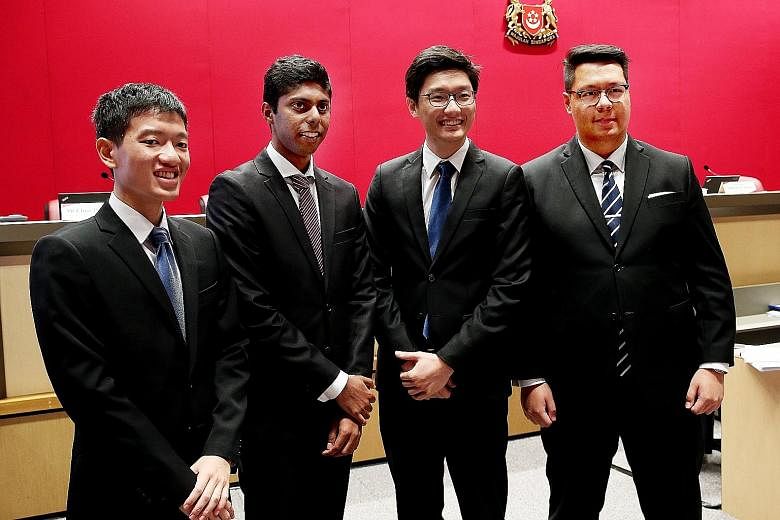Two proposed changes to the role and structure of a council that advises the president were made yesterday.
One came from a group of law students, which wants the six-member Council of Presidential Advisers (CPA) to be reconfigured into three wings that the president can turn to for specialised advice.
These are: financial, legal and appointment, which will advise on key public service appointments, such as the chief justice and auditor-general.
But each CPA member can serve in more than one category, they told the nine-member Constitutional Commission reviewing the elected presidency framework.
The second and more radical proposal was made by 28-year-old lawyer Ronald Wong.
He wants two of the six CPA members to be elected by Singaporeans. The six would then get together and vote for one of them to be the president.
But such a system could frustrate Singaporeans as there is a chance that neither of the two whom people elected could be picked as the president, said Mr Philip Ng, a member of the commission and the chief executive officer of property developer Far East Organization.
Mr Wong replied that in his proposal, the president would play a ceremonial role while all decisions the president is required to make would be collectively taken by the six-member CPA, with a majority vote.
This effectively transfers some of the president's powers to the CPA and gives it more teeth, he added.
"The CPA and president have to be seen as a unitary institution," said Mr Wong, who argued that his proposal will ensure the president's custodial powers are subject to the CPA's own veto powers, and will bring a consensus to the office.
Asked by Chief Justice Sundaresh Menon, the commission chairman, if he was proposing a fundamental redesign to the elected presidency, essentially situating the office within the CPA, Mr Wong agreed.
He also said his system is a "halfway house" that seeks to bridge the old system, in which the president is appointed, and the current one of popular election.
The law students' proposal largely focused on improving the CPA's effectiveness and transparency.
One of them, Mr Alexander Lee, 23, said the three specialised wings for the president to consult would improve the quality of the CPA's advice and make it more efficient.
Justice Tay Yong Kwang, a commission member, pointed out that the decisions before the president may not be so "clean cut" as to fall neatly into the three categories.
CJ Menon agreed, and added that there is value in the way the present CPA considers all issues as a group, bringing their diverse expertise and perspectives to the discussion.
But while it may not be wise to "compartmentalise the CPA into specific areas of expertise", CJ Menon said there is value to having guidelines that ensure the CPA members together bring a range of experience to the table, which would not be "unbalanced".
The extent of the president's veto powers was also raised.
Currently, the president's decision is final when he acts with the CPA's support. When the CPA disagrees, he may exercise his veto powers, but Parliament may override it with a two-third majority.
But CJ Menon said a third option worth exploring is when a minority in the CPA disagrees with the president's veto, and that veto can be overturned by a parliamentary "super-majority''.


